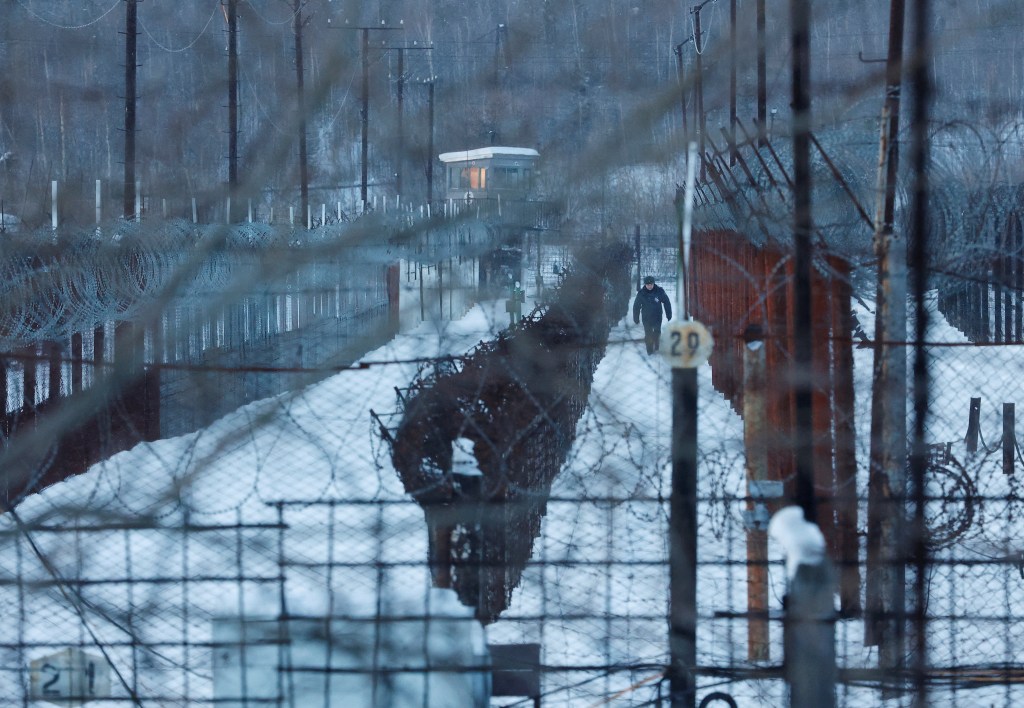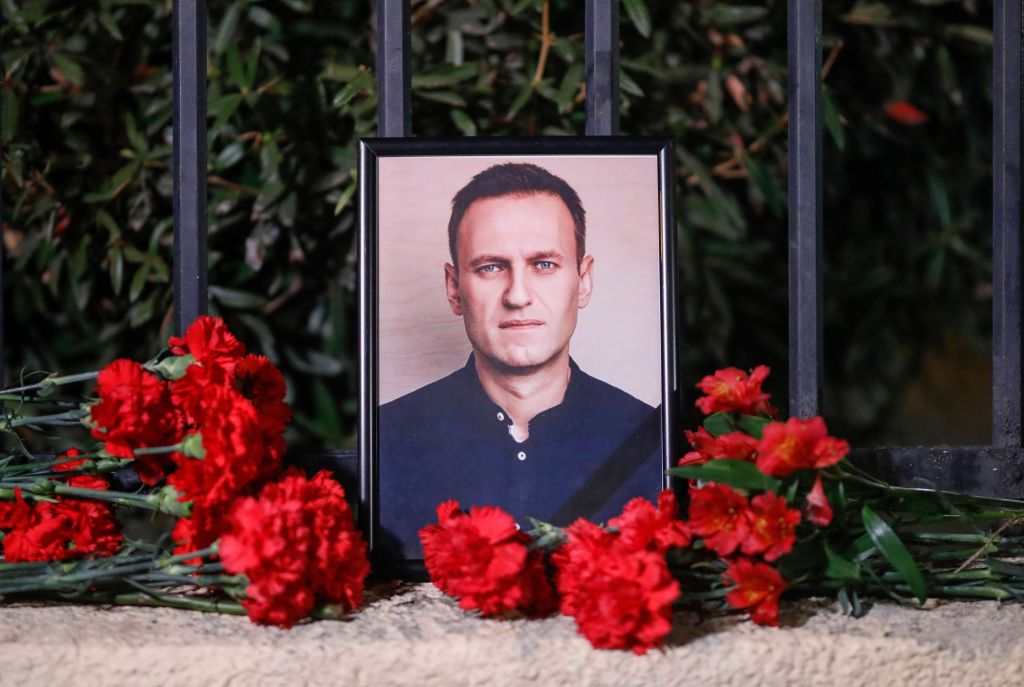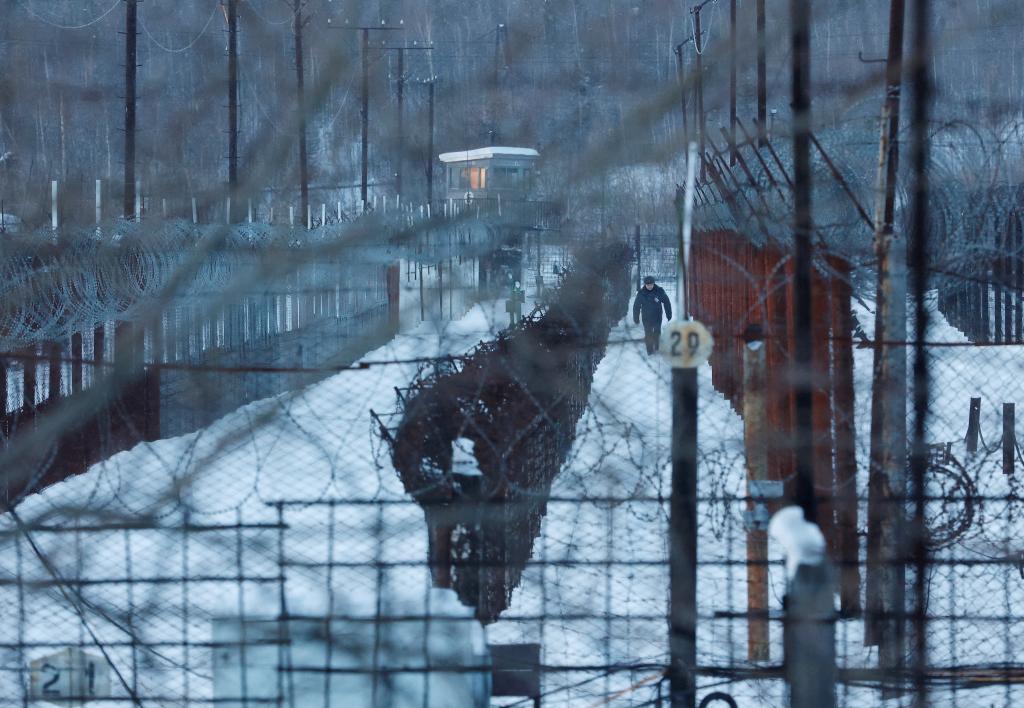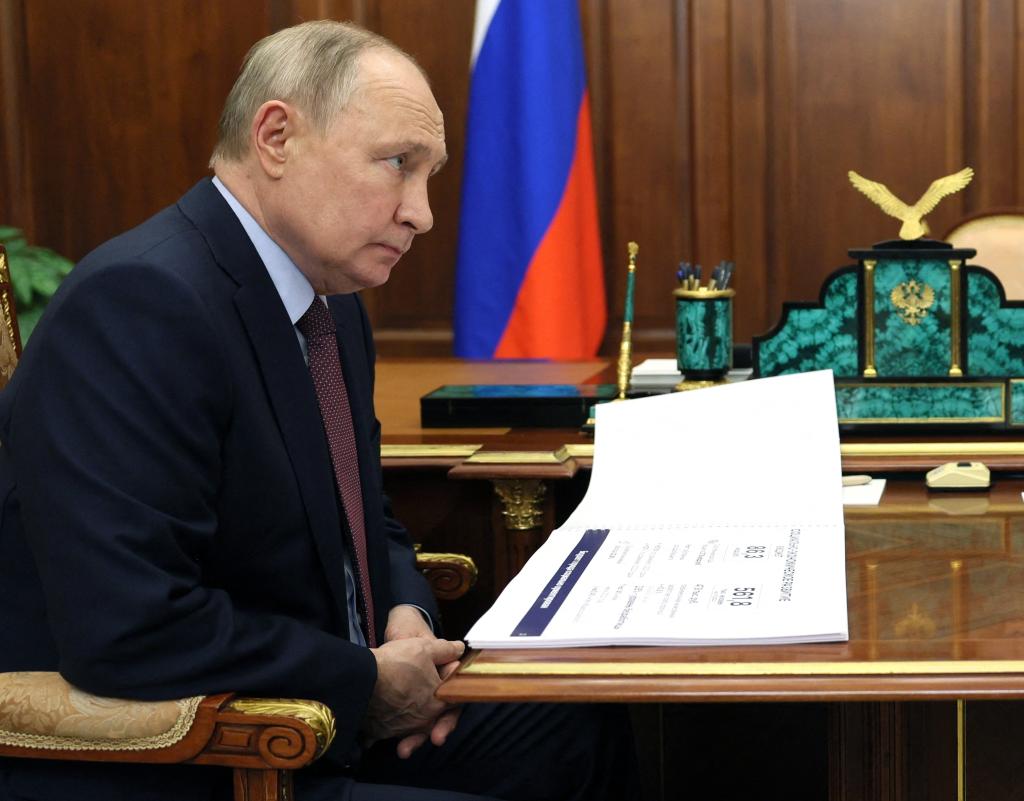Was Alexei Navalny poisoned in prison? All the evidence pointing to Putin foe’s untimely death by nefarious means
Alexei Navalny’s cause of death has yet to be revealed, but the famous Russian dissident’s family claims he was fatally poisoned by a nerve agent on Kremlin dictator Vladimir Putin’s orders.
The body of the 47-year-old lawyer-turned-political activist, whose death was reported by Russia on Friday, has not been turned over to his mother and the family’s legal team so far, prompting his fearless widow, Yulia, to publicly accuse Putin’s regime of trying to cover up his murder.
Here is the key mounting evidence pointing to the poisoning of Navalny, Putin’s fiercest critic:
His demise was sudden and mysterious
Russia’s Federal Penitentiary Service announced Friday that Navalny had collapsed while taking a walk at the “Polar Wolf” penal colony, formally known as IK-3.
The federal agency, which oversees prisons and correctional services in the country, said the opposition leader “almost immediately” lost consciousness when he fell and added that he died despite an ambulance crew’s efforts to revive him.
But according to the independent Russian newspaper Novaya Gazeta, which cited an unidentified prisoner, the ambulance only arrived after Navalny was declared dead.
When Navalny’s 69-year-old mother, Lyudmila, and his lawyer got to the remote Arctic prison the next day, they were told he died from “sudden death syndrome,” according to Ivan Zhdanov, the head of Navalny’s Anti-Corruption Foundation.
“Sudden death syndrome” typically refers to heart-related issues that cause fatal cardiac arrest.
Navalny’s widow, Yulia Navalnaya, on Monday claimed that her husband collapsed and died because he was poisoned with the nerve agent Novichok on Putin’s orders.
Death by Novichok can occur by asphyxiation or cardiac arrest, according to the BBC — which would explain Navalny’s “sudden death syndrome.”
Prison video cameras just happened to be disconnected beforehand
Agents with Russia’s spy agency disconnected the prison’s surveillance cameras during a visit there days before Navalny dropped dead, according to activists with the Russian human rights organization gulagu.net, Metro reported.
Some inmates reported unidentified vehicles showing up at the prison the night before, the outlet added.
Activists say such alarming activity shows “everything was preplanned and coordinated. … Minute by minute. Second by second.”
Time of death suspiciously murky
A prisoner told Novaya Gazeta that inmates learned at 8 a.m. Moscow time Friday that Navalny had died, although it was unclear exactly how word spread and when he perished.
Around 10 or 10:30 a.m., prison authorities then officially announced Navalny’s in-house, saying he had just died.
Then at 2:19 p.m., the Kremlin issued a press release announcing his death — saying Navalny had died 2 minutes earlier, at 2:17 p.m.
His body showed damning evidence of bruises and convulsions
Bruises were spotted on the activist’s head and chest when his body arrived at an Arctic morgue — a sign that he had experienced convulsions, a paramedic told the Novaya Gazeta.
Russian chemist-turned-defector Dr Vil Mirzayanov, who was the first to tell the world about Novichok in the 1990s, said a large dose of the nerve agent could cause severe convulsions, resulting in death.
Novichok, which means “newcomer” in Russian, refers to a class of highly toxic nerve agents that were developed by the Soviet Union during the late Cold War period of the 1970s and ’80s, reported BBC News.
What is Novichok?
- Russian opposition leader Alexei Navalny’s widow has claimed that her husband was murdered by Vladimir Putin’s regime with the nerve agent Novichok.
- Navalny was found dead after collapsing during a walk in Russia’s notorious “Polar Wolf” penal colony last week, according to prison officials.
- Novichok was developed in the Soviet Union in the 1970s and 1980s and is believed to be about five to 10 times more lethal than other poison gases like sarin or VX.
- Exposure to Novichok causes a “slowing of the heart and restriction of the airways, leading to death by asphyxiation,” Professor Gary Stephens, a pharmacology expert at the University of Reading, explained to Reuters.
- A paramedic reportedly spotted bruises on Navalny’s head and chest when his body was brought to the morgue, according to a report.
- The Putin critic previously survived being poisoned with Novichok in 2020 when the nerve agent was applied to his underwear while he was traveling.
Some versions of Novichoks are liquid, while others take the form of a fine powder, which can unknowingly be inhaled, ingested or rubbed into the skin.
Victims can feel the toxin’s potentially deadly effects within 30 seconds to a couple of minutes.
Similarly to other nerve agents, Novichoks block messages from the nerves to the muscles, disabling vital bodily functions.
Dissident was allegedly poisoned by Putin before
Nearly four years earlier, Navalny narrowly survived a poisoning from Novichok, which had been applied to his underwear while he was traveling from the Russian city of Tomsk to Moscow.
One of the Russian spies allegedly involved in the hit later confessed details about it.
Navalny had appeared fine on camera just a day earlier
The imprisoned activist was last seen alive Thursday during a Russian court hearing, which he attended by video link from prison.
The married dad of two appeared to be in good health, giving no indication that he was suffering from any medical issues, even cracking jokes with the judge about his dwindling funds.
The court hearing revolved around an “argument” with a prison officer who tried to confiscate Navalny’s pen, according to the independent online news outlet SOTA.
Navalny wrote later that he had been given a 15-day stint in solitary confinement over the incident — his 27th time in solitary since the start of his incarceration in 2021.
The dissident’s mother added to Novaya Gazeta that her son had been “alive, healthy, and happy” when she last saw him Feb. 12.
State media report suggesting ‘blood clot’ is another red flag
An unnamed source told the state-controlled news outlet RT that Navalny died from a blood clot without providing any evidence to back up that claim.
Anna Karetnikova, a former Russian prison official, said that from her experience overseeing detention centers in the Moscow region, citing a “blood clot” is commonly a handy excuse to explain away suspicious inmate deaths.
Asked about the blood-clot explanation, Dmitry Peskov, Putin’s spokesman, said, “I don’t know. I don’t know. Medics have to somehow determine it.”
Where’s the body?
Navalny’s corpse was transported from the penal colony, where he had been serving a decades-long prison sentence on extremism and parole violation convictions, to the nearby Salekhard District Clinical Hospital’s morgue Friday.
But his lawyer and mother were barred from viewing his body there, prompting his supporters to swiftly accuse the Kremlin of a cover-up.
Nalvany’s widow added that government officials were deliberately preventing the family from taking possession of his body to date to allow traces of Novichok to vanish from his system. Aspects of the nerve agent can hang around in a victim’s body for several weeks, experts have said.
Zhdanov, Navalny’s close ally, said he was told by a Russian investigator Monday that postmortem tests on the dead opposition leader’s body will take 14 days to complete.
Kremlin response to poison claims is beyond weak
The Kremlin has remained notoriously opaque while strenuously denying any involvement in Navalny’s death, calling suggestions otherwise “rude.
“When there is no information, it is unacceptable to make these rude statements,” Peskov told reporters. “These statements cannot do any damage to the leader of our country, but they definitely do not make the people saying them look good.”
With Post wires

























